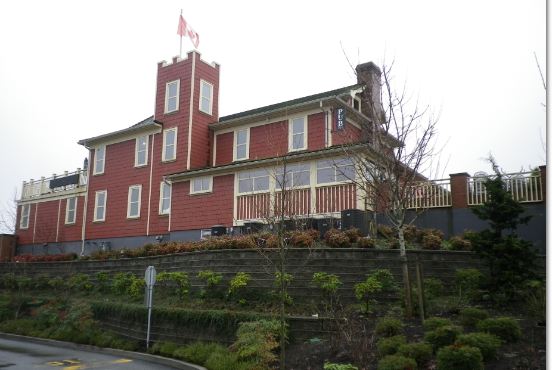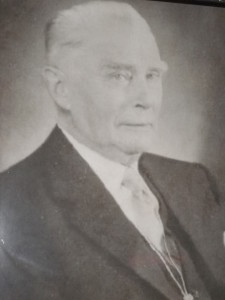I had lunch at the Baron’s Manor Pub recently. It’s a heritage house at the corner of 96th Avenue and 192nd Street in Port Kells, converted to a pub in 2005, and the new owners have given it a museum-like quality by filling it with old photos, newspaper articles and artifacts from one of its early owners, the Baron von Mackensen.

According to the story, before coming to Canada, Mackensen spent a few years in the German military and married a rich heiress in 1902. Supposedly, her mother paid him the equivalent of $250,000 Canadian dollars to divorce her daughter and hit the road. He took the cash, arranged an honourable discharge from the army in 1904 (he was the nephew of General August von Mackensen) and headed for Canada. The Baron’s choice of the farming community of Port Kells was odd, but it most likely allowed him to stretch his windfall, let him live a sort of feudal lord existence, and allow his spy mystique to stay intact over a century later.

The Baron made himself popular by throwing huge Christmas parties at his 16-room home every year, inviting everyone in the area, serving drinks and food and giving everybody gifts. Locals dubbed it the “Castle” because of the turreted tower he had built in 1910. The house had a stained glass window depicting the family coat of arms, a grand staircase, and a foyer with standing suits of armour and swords, pistols and muskets hanging on the walls.
When War broke out in 1914, the Baron’s popularity took a nose dive. It wasn’t helped when, in an environment already thick with fear and paranoia, he flew the German flag from his roof top.
Kay Kells, whose family has lived in the area since the late 1800s, told me that her father-in-law Fred Kells, told von Mackensen to take down the flag down or he would shoot it down.
Kay says the house was frequently searched by authorities, and according to the story passed down in the family, a young constable found papers and a map hidden in the dirt of a plant holder. Supposedly he had marked places on the map that favoured Germans would be given after they won the war.
Unfortunately nobody can remember actually seeing the map or what happened to it. Evidence seized from suspected spies was lost in a government office fire in the 1960s. In January 1915 Mackensen ended up in an internment camp in Vernon. Kay says her father-in-law was a guard there, which must have made for some interesting conversations after the flag episode.
After the war ended, the government booted Mackensen out of the country and confiscated his assets. Locals still refer to it as Spy House and still talk about stories of a tunnel leading to the Fraser River, passageways between rooms connected by closets, and a secret radio room in the bell tower.
© All rights reserved. Unless otherwise indicated, all blog content copyright Eve Lazarus.


